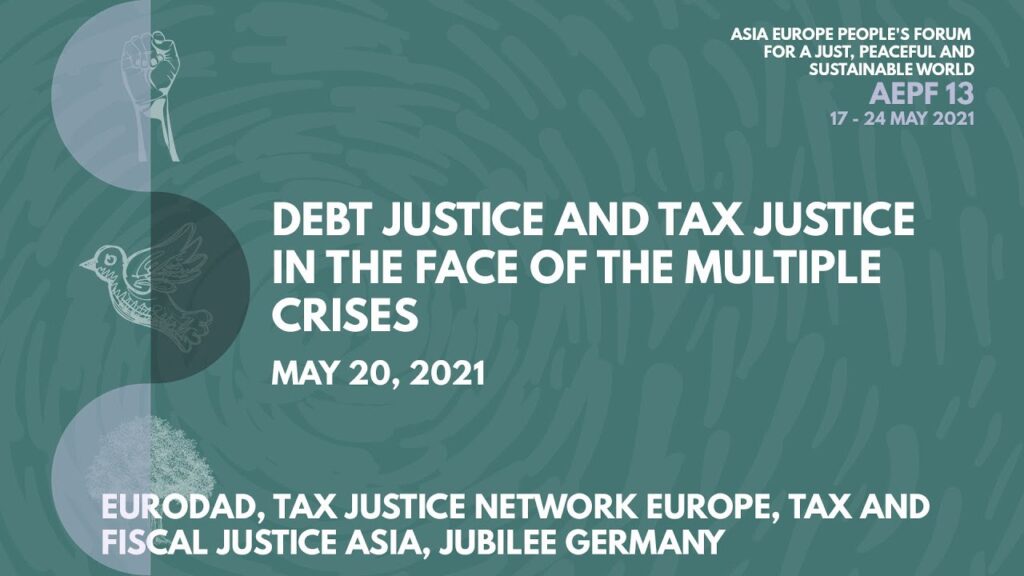During the webinar speakers discussed perspectives and demands of movements in the global South for debt cancelation and debt relief, as well as for tax justice to respond to multiple crises and rising inequalities, looking at both cases of national tax agendas and the global tax architecture.
This briefing provides an overview of the dynamics and implications of the 2020 sovereign debt crisis. The prioritisation of creditor rights over the livelihoods of the population of developing countries is a well-known dead-end. Instead, the international community must recognise that the health and wellbeing of millions of people in developing countries is a precondition for debt sustainability.
The apparent financial resilience of developing countries in the aftermath of the Covid-19 shock is misleading. It is the result of a combination of cyclical factors in the form of sectoral adjustments and monetary policy responses triggered by the pandemic. Promoting a prompt return of countries to international financial markets without addressing the debt vulnerabilities exacerbated by the crisis will increase the external financial fragility of developing countries. In turn, it will require a growing transfer of resources from public borrowers to their external creditors over the coming decade. Until now, countries across the world have done so at great human and social costs to their populations. Continuing down this path will sound the death knell for the commitments under the 2030 Agenda, the Paris Climate Agreement and the Beijing Declaration.
The Covid-19 crisis threatens to erode two-decades’ of progress on poverty reduction in Bangladesh. This difficult situation highlights the need for a more ambitious response to the crisis.
This blog has been written by ActionAid Bangladesh as part of a series of articles produced in conjunction with Eurodad on the implementation of the Debt Service Suspension Initiative (DSSI), to complement the report “Shadow report on the limitations of the G20 Debt Service Suspension Initiative: Draining out the Titanic with a bucket?” published in October 2020.
Click to read the full report
Nepal has been caught in a blizzard of economic and health challenges caused by the Covid-19 pandemic. Like other countries in the global south, it has received insufficient and inadequate support to tackle these challenges. The consequences of the lack of international solidarity are being felt by the most vulnerable people across the country.
This blog has been written by Asian Peoples’ Movement on Debt and Development (APMDD) and Tax and Fiscal Justice Alliance Nepal as part of a series of articles produced in conjunction with Eurodad on the implementation of the Debt Service Suspension Initiative (DSSI), to complement the report “Shadow report on the limitations of the G20 Debt Service Suspension Initiative: Draining out the Titanic with a bucket?” published in October 2020..
Click to read the full blog
Zambia became the first country to default on its sovereign debt as a result of Covid-19. What are the implications of this development in the context of the recently announced G20 initiative for a “Common Framework for Debt Treatments Beyond the DSSI”? Is Zambia a herald of things to come to other developing countries? How is the crisis affecting the lives and livelihoods of the Zambian people? Join us for a discussion on these issues.
Moderation:
- Iolanda Fresnillo (Eurodad).
Panelists:
- Tim Jones (Jubilee Debt Campaign UK),
- Muchimba S. Siamachoka (JCTR Zambia).
Respondents:
- Jason Braganza (Afrodad), Representative from the office of the UN Independent Expert on Foreign Debt
Organised by: JCTR, Afrodad, Eurodad, Jubilee Debt Campaign UK, Erlassjahr.
The Philippines has been in a vulnerable position since the beginning of the Covid-19 pandemic. This vulnerability can be explained by social, economic, health and financial factors. As a result of these pre-existing conditions, the crisis has been acutely felt by the population of the country.

